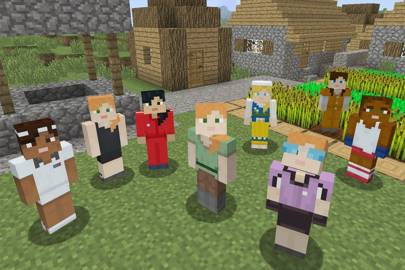Parents – don’t worry about your children spending all their time online playing games. It may actually be improving their performance at school.
That’s according to new research from RMIT University in Melbourne, Australia. The institution found that playing games could help students in sharpening skills learned at school, and then applying them elsewhere.
Research was conducted by Alberto Posso, associate professor at RMIT’s School of Economics, Finance and Marketing. Posso investigated data from the globally recognised Program for International Student Assessment, scraping the test results from more than 12,000 Australian 15-year olds.
Posso looked at tests covering maths, reading, and science, while also collecting data on students’ online activities. Those who played online regularly saw sharp improvements in academic performance over those who did not.
“Students who play online games almost every day score 15 points above the average in maths and 17 points above the average in science,” said Posso.
“When you play online games you’re solving puzzles to move to the next level and that involves using some of the general knowledge and skills in maths, reading, and science that you’ve been taught during the day,” Posso added. “Teachers should consider incorporating popular video games into teaching – so long as they’re not violent ones.”
The integration of gaming and education is nothing new – educational games have existed almost as long as personal computers. However, recent years have seen the growth of collaborative, online learning experiences using the medium, with the likes of Minecraft having its own Education Edition.

However, while gaming can have beneficial results, social media may have the opposite effect. Posso’s research found that students who visit Facebook or other similar sites daily are actually more likely to fall behind in subjects such as maths, reading, and science – some as low as 20 points worse than those who never use social platforms.
“Students who are regularly on social media are, of course, losing time that could be spent on study – but it may also indicate they are struggling with maths, reading and science and are going online to socialise instead,” suggested Posso.
“Teachers might want to look at blending the use of Facebook into their classes as a way of helping those students engage.”
Posso does highlight that other factors could have major impacts on teenagers’ academic progress though, suggesting that repeating a school year or skipping classes has a far greater negative impact than a Facebook addiction.
Real-world community divisions could also influence development to a worse extent than social media. The study found that “indigenous students or those from minority ethnic or linguistic groups” were at “greater risk” of falling behind than teens that engaged in high use of social media.
Posso’s full research, Internet usage and educational outcomes among 15-year-old Australian students, has been published in the International Journal of Communication.
Playing online games can make children smarter (just don’t let them use social media)